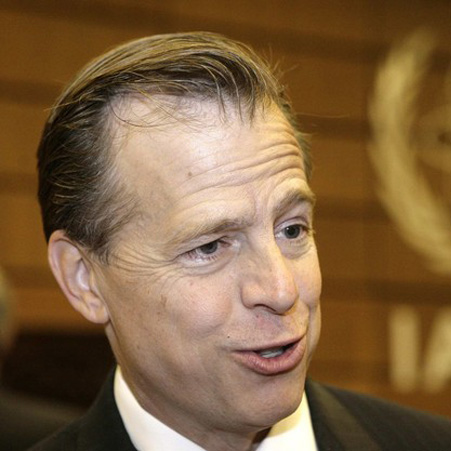Azerbaijan, Baku, September 26 / Trend Е.Оstapenko, Т.Коnyayeva /
The failure to apply Code 3.1 modified is a serious impediment to the IAEA's ability to properly safeguard and verify nuclear activities in Iran, said Glyn Davies, U.S. Permanent Representative to the International Atomic Energy Agency (IAEA).
"Moreover, Iran's continued refusal to implement Code 3.1 modified of its Safeguards Agreement, to provide early notification of new nuclear facilities, disconcertingly suggests that this access will not be routine or regularized, as required by Iran's safeguards agreement and subsidiary arrangements, but rather will be ad hoc and last-minute when politically expedient," Davies told Trend in an interview.
In 2003, Iran agreed upon modified Code 3.1, which obligates it to report on new facilities for nuclear research, as soon as a decision on their construction is made.
In 2007, Iran tried to claim that implementation of the Code 3.1 is not forced, as it was not ratified.
According to Davies, the Director General's report indicated that Iran permitted the IAEA to conduct a Design Information Verification (DIV) inspection at the Arak reactor.
"This development is, of course, welcome. However, access granted after a year of defiance is not something to be congratulated," Davies said.
Information about the existence of facilities for the production of heavy water near the Iranian town of Arak first appeared in connection with the publication of satellite images by the American Institute for Science and International Security in December 2002.
Heavy water is used to reduce the nuclear fission chain reaction either in a certain type of reactor, or in the production of plutonium for use in a nuclear bomb.
The limits placed by Iran even on this one opportunity to conduct safeguards at the Arak reactor revealed further the lack of Iranian cooperation, Davies said.
According to him, the report clearly indicates that, while Iran continues to make significant progress at Arak, Iran has yet to provide critical, detailed design information, in particular about the nuclear fuel characteristics, fuel handling and transfer equipment, and the nuclear material accountancy and control system.
"This information is fundamental to safeguards implementation and should be provided without delay, Davies said. Without continuing access to new nuclear facilities, the IAEA is unable to verify the peaceful nature of those facilities".
Davies also noted that Arak isn't yet producing any plutonium but could produce 1-2 weapons worth once operational. Failure to provide consistent access could mean that nuclear material is at greater risk of diversion.
As the Director General noted in his report, Iran is the only state with significant nuclear activities that has a comprehensive safeguards agreement in force but is not implementing the provisions of the revised Code 3.1.
Do you have feedback? Contact our journalist at: [email protected]






